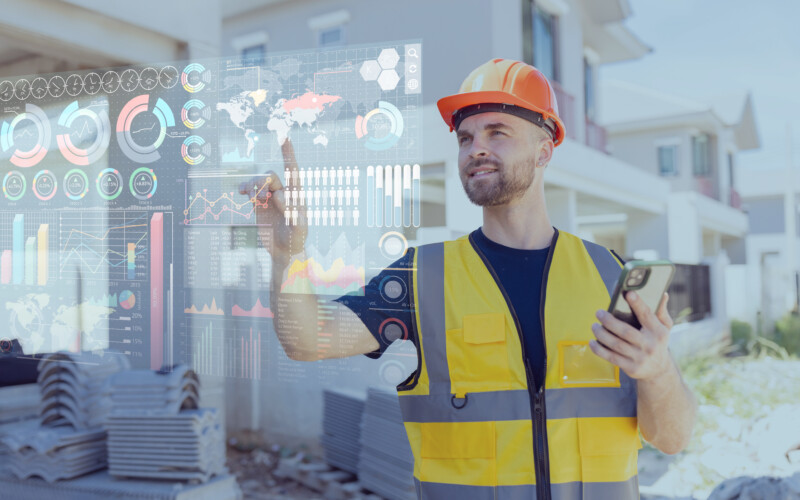
IoT, CDE, BIM – these and other acronyms describe nothing less than the most important mega-trends within construction: The digital transformation. With perhaps the exception of smart homes as a final flourish, the manifold opportunities of digitalisation have been a little slow to catch on iso far. Now the sector is in the thrall of the so-called 4th Industrial Revolution, and digitalisation is becoming increasingly important. The opportunities it presents – even in the planning phase – are astonishing and there are good reasons why it is now the dominant topic in the industry.
Put simply, Industry 4.0 or the 4th Industrial Revolution stand for the smart connectivity of machinery and process control. This is enabled by high speed communication interfaces, the real-time availability of big data and the ability to connect ‘things’ using sensors. This Internet of Things (IoT) and the immense volumes of data that can be incorporated into decision-making processes as early as the (virtual) construction phase (CDE = Common Data Environment) form the backbone of digital transformation within the construction sector. Potential uses range from resource-efficient planning and implementation, visualisations and simulations on a realistic model even before the actual start of construction (BIM = Building Information Modelling) to the largely automatic control of apartments, houses or entire facilities according to the principle of ‘smart homes’. The focus here is on resource efficiency, planning reliability, workflow optimisation and ultimately sustainable energy use in operations.
The immense potential that digitalisation presents in the area of sustainability is still underestimated. Automated lighting and heating controls are just minor examples, albeit ones that everyone can understand. The EU has set itself the target of making all of its existing buildings climate-neutral by 2050. And this would be impossible without support from digital resources and measures. A 2024 study by PwC on the digitalisation of the German construction industry found that the following aspects are particularly important in regard to efficiency and sustainability:
As a visionary urban planner and project developer, we too rely not only on future requirements in regard to living, working and housing, but also on cost- and resource-efficient measures in planning, implementation and downstream management. An economically viable property that can be operated sustainably is important for investors, future residents and users alike and is essential for the success of an ongoing project. We harness the power of VR/
Further reading:
Stadt der Zukunft – Im Rahmen von open4innovation (BM Klimaschutz, Umwelt & FFG)
BIM, smart home, IoT and more: Trend terms in the construction industry.